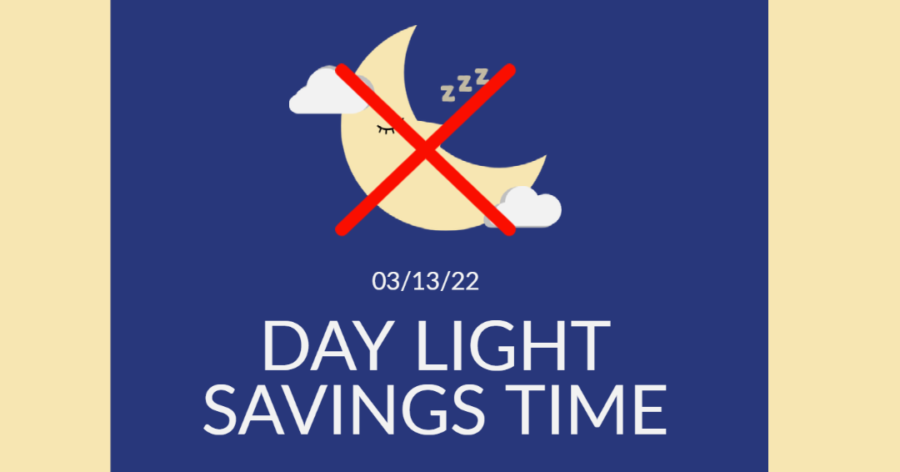Saving time should be a crime
Daylight savings is implemented in the middle of March and is detrimental to having a healthy sleep pattern.
March 24, 2022
Twice a year various countries around the world go through the gruesome process of daylight saving times.
In 1784, Benjamin Franklin came up with daylight savings time to preserve candles and during the oil crisis in the 1970s, the US Department of Transportation found the national electricity usage to be trimmed by 1 percent. This shows in some ways daylight savings has been economically beneficial.
However, the National Bureau of Economic Research quantifies stark realities about Daylight Savings. An observational study conducted in Indiana on electricity costs found that residents are actually paying 9 million dollars more. The reason for this is that while the light bill went down, the need for cooling and heating went up.
Additionally, daylight savings doesn’t just affect one hour of sleep. In the Sleep Medicine Reviews by Dr. Yvonne Harrison, a lecturer at Liverpool John Moores University saw that the innocent one-hour shift can influence up to a week’s worth of sleep. This week especially with a lot of tests since it is the end of the quarter can prove problematic to most Jefferson students.
People have also been more prone to car accidents, leading to about 28 deaths every year according to the Fatality Analysis Reporting System.
In a 2015 study published in Sleep Medicine, they found the rate for heart attack was 8% higher the first two days after the shift, and people with cancer were 25% more likely to have a stroke than other times of the year. Additionally, people over 65 were 20% more likely.
Daylight savings is obviously proven to be detrimental by increasing heart attacks, car accidents and disrupting sleeping patterns. With more information about the detrimental effects, legislators seem to be taking steps in the right direction.
Last Tuesday, the Senate passed legislation making daylight savings permanent. If this bill passes the House, we will switch during spring 2023 and never fall back in the fall. Standard time is what happens when we set our clocks back an hour in the fall. As a result, standard time is closer to the intrinsic circadian rhythm, says the American Academy of Sleep Medicine. The intrinsic circadian rhythm is important in sleep because they are the body’s way of having a natural sleep-wake cycle.
With a large correlation between the intrinsic circadian rhythm and activity, digestion and cardiovascular activity and daylight savings time having detrimental effects on sleep habits, accident rates and heart attacks, standard time should be permanent.






